
Zliten: The Hidden Gem of Libya
Situated along the glittering Mediterranean coast, Zliten is a city that offers a unique blend of history, culture, and natural beauty. Known for its charming old town and serene beaches, Zliten provides an off-the-beaten-path experience for travelers seeking to explore Libya's rich heritage. One of the city's main attractions is the Mausoleum of Sidi Abdul-Salam Al-Asmar, an important religious site that draws pilgrims and visitors alike. The mausoleum complex is adorned with intricate Islamic architecture and offers a tranquil setting for reflection and photography. Zliten's coastline is another highlight, featuring pristine beaches and crystal-clear waters perfect for swimming, snorkeling, and sunbathing. The city's Mediterranean climate ensures pleasant weather for most of the year, making it an ideal destination for beach lovers. For those interested in local culture, Zliten hosts several annual festivals that celebrate Libyan traditions, music, and cuisine. The city's bustling markets are also worth a visit, offering a wide range of local products, from handmade crafts to delicious street food. While Zliten may not be as well-known as other Libyan cities, its unique charm and welcoming atmosphere make it a must-visit destination for any traveler looking to experience the true essence of Libya.
Local tips in Zliten
- Visit the Mausoleum of Sidi Abdul-Salam Al-Asmar early in the morning to avoid crowds and enjoy a peaceful atmosphere.
- Bring comfortable walking shoes for exploring the old town and markets.
- Sample the local cuisine at street markets for an authentic taste of Libyan flavors.
- Carry cash, as many local vendors may not accept credit cards.
- Respect local customs and dress modestly, especially when visiting religious sites.
Zliten: The Hidden Gem of Libya
Situated along the glittering Mediterranean coast, Zliten is a city that offers a unique blend of history, culture, and natural beauty. Known for its charming old town and serene beaches, Zliten provides an off-the-beaten-path experience for travelers seeking to explore Libya's rich heritage. One of the city's main attractions is the Mausoleum of Sidi Abdul-Salam Al-Asmar, an important religious site that draws pilgrims and visitors alike. The mausoleum complex is adorned with intricate Islamic architecture and offers a tranquil setting for reflection and photography. Zliten's coastline is another highlight, featuring pristine beaches and crystal-clear waters perfect for swimming, snorkeling, and sunbathing. The city's Mediterranean climate ensures pleasant weather for most of the year, making it an ideal destination for beach lovers. For those interested in local culture, Zliten hosts several annual festivals that celebrate Libyan traditions, music, and cuisine. The city's bustling markets are also worth a visit, offering a wide range of local products, from handmade crafts to delicious street food. While Zliten may not be as well-known as other Libyan cities, its unique charm and welcoming atmosphere make it a must-visit destination for any traveler looking to experience the true essence of Libya.
When is the best time to go to Zliten?
Iconic landmarks you can’t miss
Arc of Marcus Aurelius
Discover the Arc of Marcus Aurelius in Tripoli – a stunning historical landmark showcasing the grandeur of ancient Roman architecture.
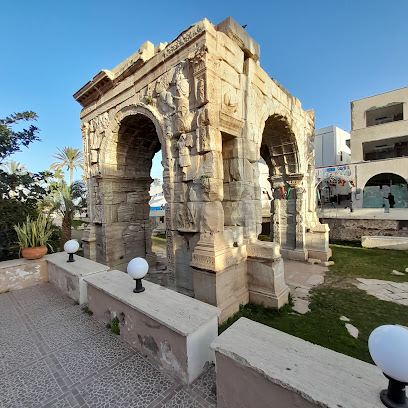
Leptis Magna
Explore Leptis Magna, a UNESCO World Heritage Site that showcases the grandeur of ancient Roman civilization amidst stunning coastal beauty.
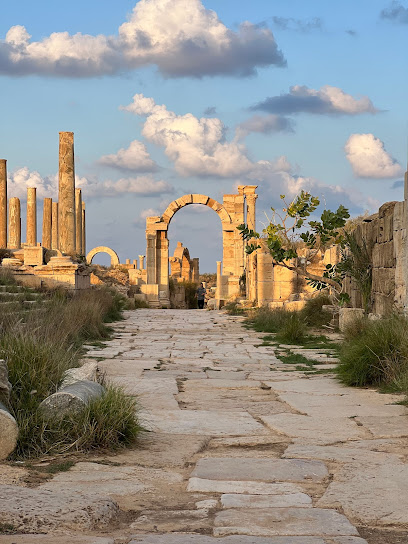
Saraya Museum
Explore the captivating Saraya Museum in Tripoli, where Libya's rich history and diverse culture come to life through an impressive collection of artifacts.
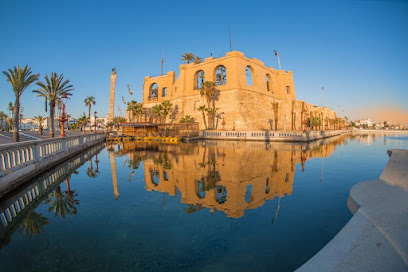
Sabratha Ancient Theatre
Discover the grandeur of Sabratha Ancient Theatre, a UNESCO World Heritage Site that showcases the marvels of Roman architecture and rich history.
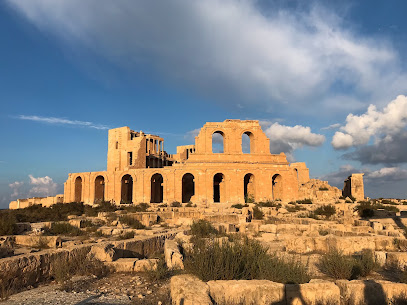
Leptis Magna Museum
Explore the ancient marvels of Leptis Magna Museum, a premier archaeological destination showcasing the splendor of Roman history.
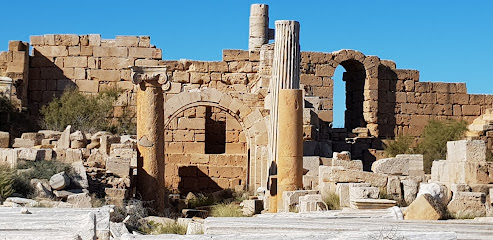
Al-Majidya Mosque
Discover the architectural beauty and spiritual serenity of Al-Majidya Mosque, a must-visit landmark in the heart of Tripoli, Libya.
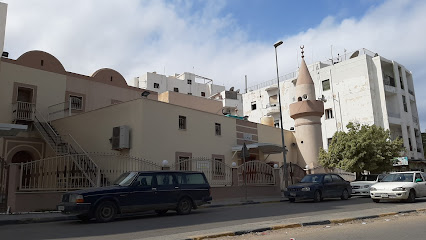
Gurgi Mosque
Experience the architectural beauty and serene spirituality of Gurgi Mosque in Tripoli's Old City, a must-visit cultural landmark.
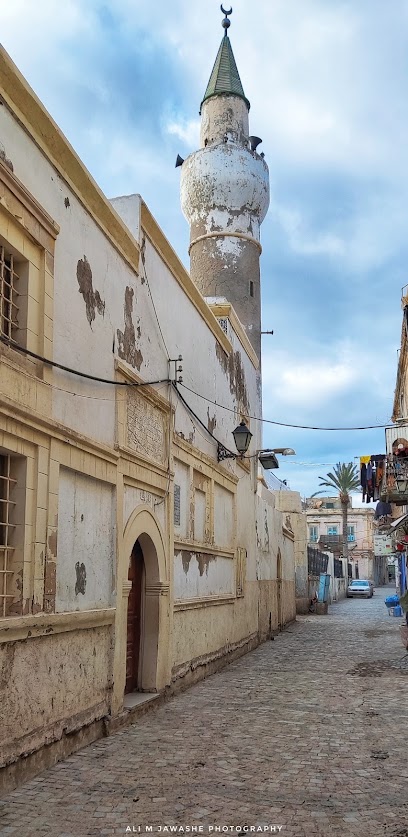
House of Yusuf Karamanli
Discover the House of Yusuf Karamanli, a stunning memorial estate in Tripoli's Old City, showcasing Libya's rich heritage and exquisite architectural beauty.
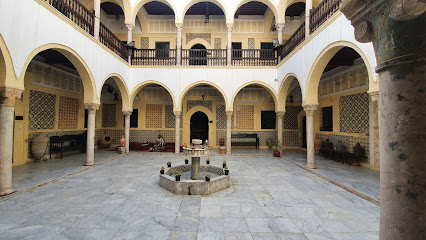
Severan Basilica
Experience the grandeur of the Severan Basilica, a centerpiece of ancient Roman architecture in Leptis Magna's rich historical landscape.
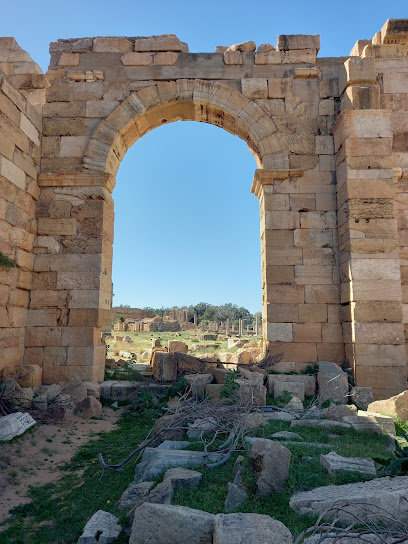
Basilica of Justinian
Discover the Basilica of Justinian in Sabratah, a stunning historical landmark showcasing ancient Roman architecture and rich cultural heritage.
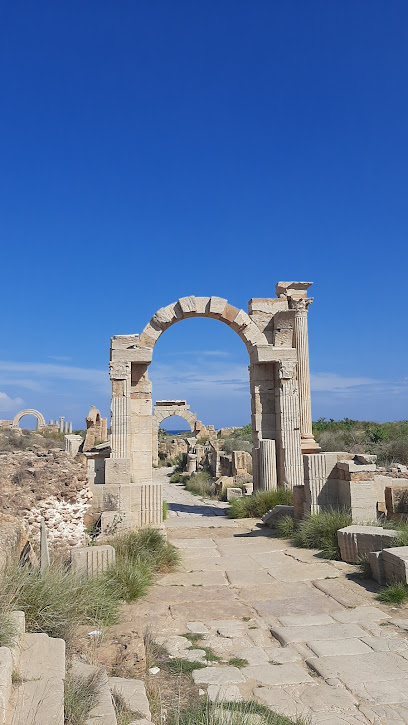
Mausoleum of Bes
Explore the Mausoleum of Bes in Sabratah, Libya – an archaeological marvel showcasing rich history and stunning ancient architecture.
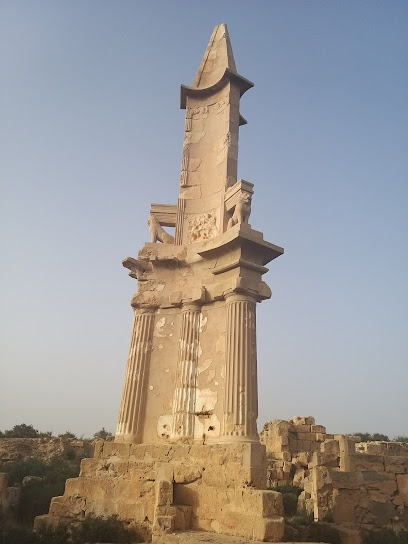
Arch of Septimius Severus
Discover the Arch of Septimius Severus in Leptis Magna, a stunning symbol of Roman architecture and history that transports you back to a glorious era.
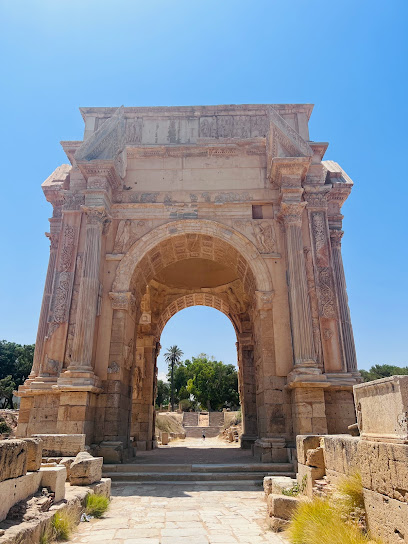
البوابة الغربية
Explore the historical charm of Khoms at the captivating Western Gate, a symbol of Libya’s rich cultural heritage and breathtaking coastal views.
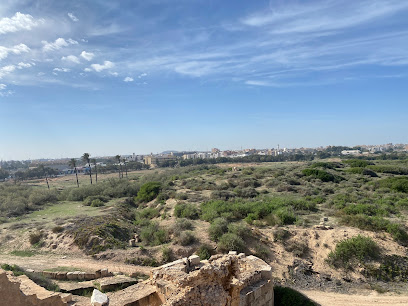
Capitoleum
Discover the awe-inspiring ruins of Capitoleum in Sabratah, a historical landmark that showcases the grandeur of ancient Roman civilization.
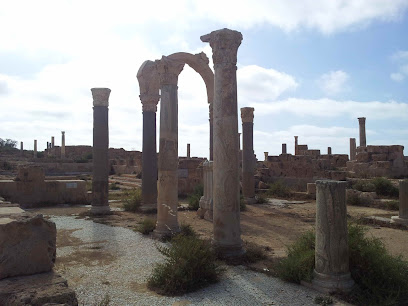
Temple of Serapis
Explore the captivating Temple of Serapis in Sabratah, a stunning historical landmark showcasing ancient Roman architecture and rich cultural heritage.
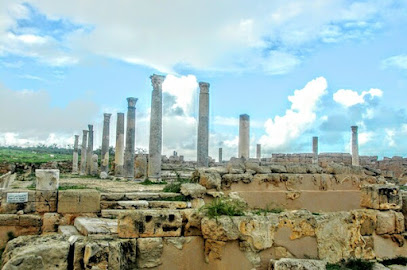
Unmissable attractions to see
Leptis Magna Museum
Explore the captivating history of Roman North Africa at Leptis Magna Museum, home to stunning artifacts from a UNESCO World Heritage site.
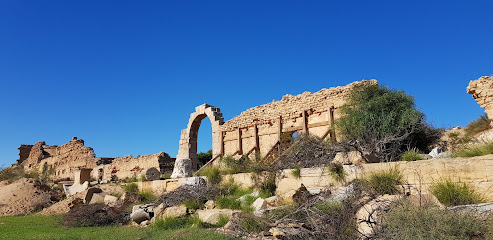
Villa Celine
Explore Villa Celine, a captivating Libyan archaeological site, and discover the grandeur of Roman architecture and ancient mosaics.
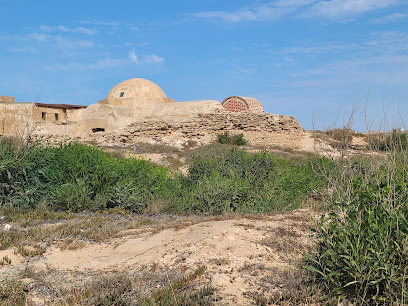
Hadrianic Baths
Step back in time at the Hadrianic Baths in Leptis Magna, exploring ancient Roman luxury and social life in stunningly preserved ruins.
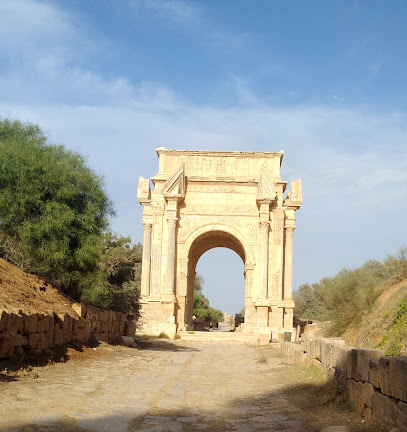
Barco lebda - باركو لبده
Explore the remarkably preserved Roman ruins of Leptis Magna, a UNESCO World Heritage site and a testament to a glorious past.
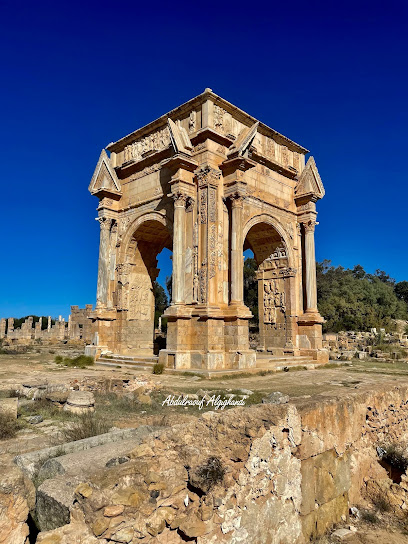
Old Basilica
Explore the majestic ruins of the Severan Basilica in Leptis Magna, a testament to Roman grandeur and civic life in ancient North Africa.
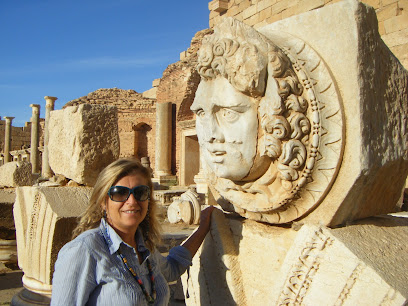
Essential places to dine
مطعم الزيتونة
Experience authentic Libyan cuisine at مطعم الزيتونة in Zliten - where tradition meets flavor in every dish.
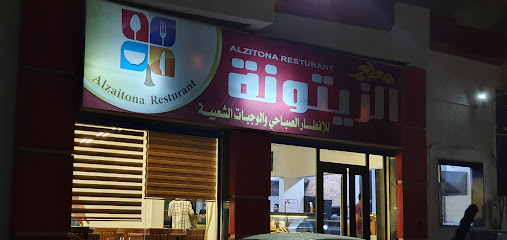
مطعم الضيافة للوجبات الشعبية
Experience authentic Libyan cuisine at مطعم الضيافة للوجبات الشعبية in Ad Dafiniyah—where tradition meets taste.
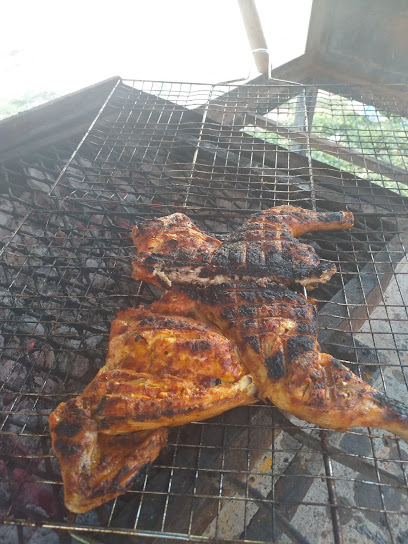
AL Dyafa Restaurant
Discover the charm of Libyan cuisine at AL Dyafa Restaurant—where family-friendly dining meets authentic flavors in Zliten.
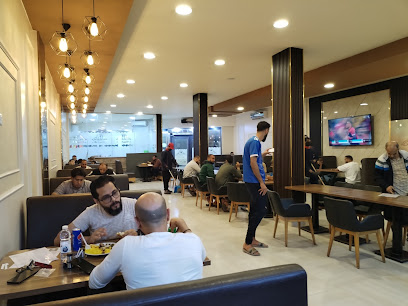
استراحة الراقي
Discover authentic Libyan cuisine at استراحة الراقي in Khoms – where traditional flavors meet warm hospitality.
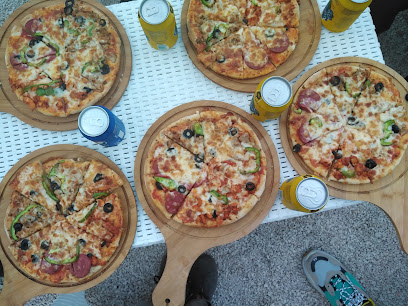
مطعم المذاق
Discover authentic Libyan flavors at مطعم المذاق in Zliten – where every meal tells a story.

مطعم لوكا
Experience authentic Libyan flavors at مطعم لوكا in Zliten – where culinary tradition meets modern dining.
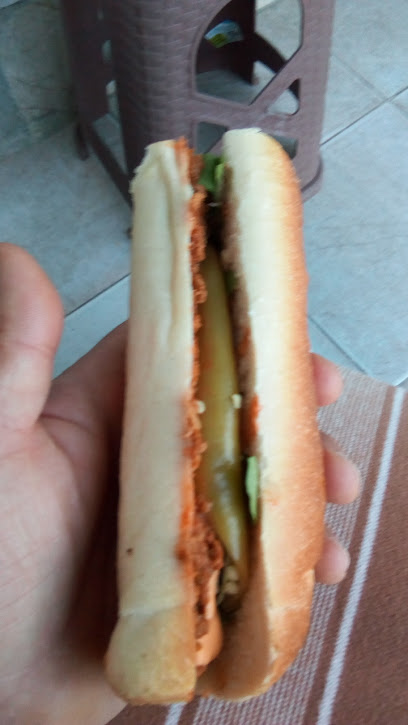
Libye
Savor authentic Libyan pizza at Libye in Zliten - where tradition meets flavor in every bite.

سلطان البرجر
Discover the vibrant flavors of Zliten at سلطان البرجر - where delicious burgers meet a lively atmosphere.
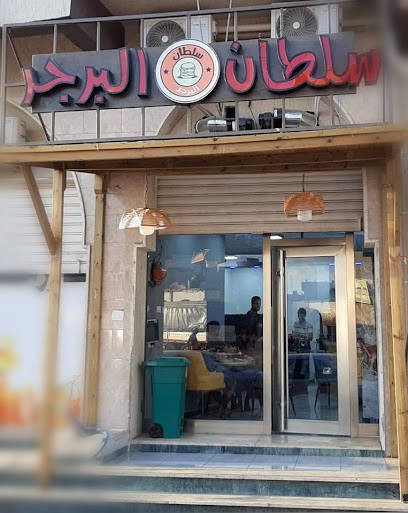
Primpo
Discover Primpo in Zliten for an unforgettable fast food experience blending local flavors with quick bites perfect for tourists.
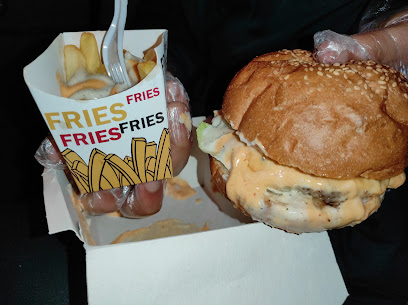
فور سيزن
Savor authentic Italian pizzas at Four Seasons Pizza in Zliten – where every bite transports you to Italy.
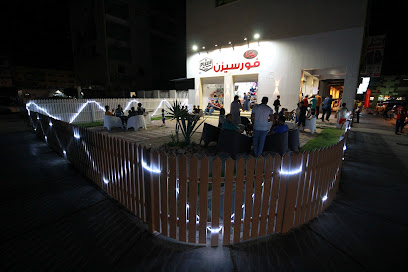
A restaurant and a snack bar
Experience authentic Libyan cuisine at this charming restaurant and snack bar in Zliten, where tradition meets casual dining.

مطعم الشاميات
Experience authentic Libyan flavors at مطعم الشاميات in Zliten – where tradition meets taste in every bite.
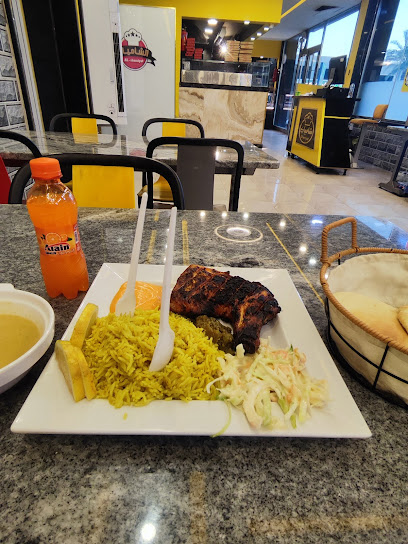
مشكل المضياف
Experience authentic Libyan flavors at مشكل المضياف in Zliten, where every meal tells a story of rich culinary traditions.
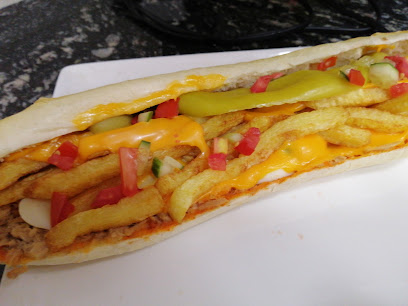
مطعم pringles
Experience authentic Libyan flavors at مطعم Pringles in Zliten – a delightful culinary journey awaits every tourist.

مطعم ديانس
Discover مطعم ديانس: Your go-to fast food destination in Zliten offering delicious meals any time of day.
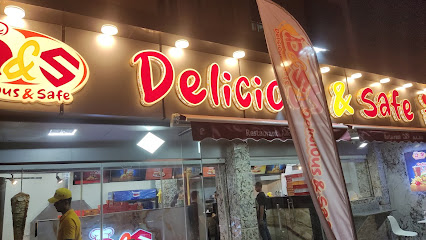
Markets, malls and hidden boutiques
سوق بن ساسي
Experience the authentic spirit of Zliten at سوق بن ساسي, where local produce and culture come together in a vibrant marketplace.

ماجر للهاتف النقال وكمالياته
Explore ماجر للهاتف النقال وكمالياته for cutting-edge mobile technology and accessories in Zliten, perfect for every traveler.
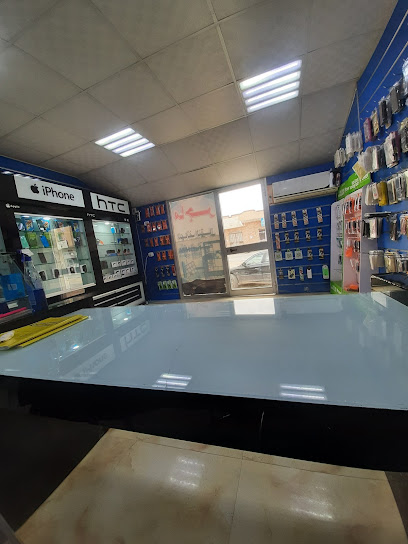
أرض العطور للعطارة العربيه والروائح ومواد الزينة والخردوات ومستلزمات الافراح
Explore the aromatic world of Zliten's Arabic Herb Shop, where traditional herbs and spices bring a taste of Libya to your culinary creations.
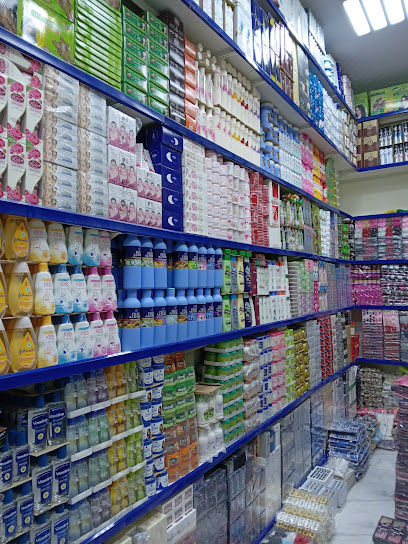
الطريق الساحلي
Discover the vibrant Coastal Road in Zliten where fresh fruits and vegetables await, embodying the rich flavors of Libya's agricultural heritage.

الشبكة للهاتف النقال والحاسوب
Explore the vibrant electronics store in Zliten, where the latest technology meets exceptional service in a welcoming atmosphere.
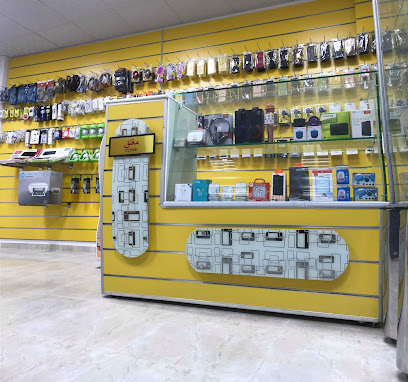
محلات ميلاد
Discover the vibrant culture of Libya at محلات ميلاد, where every item tells a story and makes for the perfect souvenir.

محل ابناء المرحوم رجب الرديع
Explore the vibrant flavors of Libya at محل ابناء المرحوم رجب الرديع, a charming grocery store in Zliten offering local produce and delicacies.
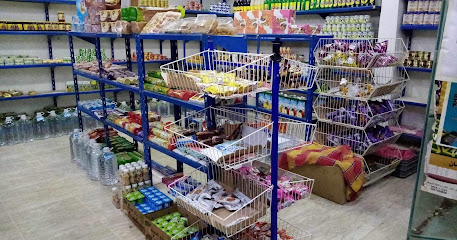
Minotti
Experience the essence of Libyan culture at Minotti in Zliten, offering a diverse array of authentic local products and souvenirs.

بيت لألعاب للألعاب وصيانة الدرجات
Discover unique souvenirs and local crafts in Zliten's charming gift shop, capturing the essence of Libyan culture and creativity.

حجاح أبوظهير للزي الليبي 1984
Immerse yourself in Libyan culture with authentic attire at حجاج أبوظهير للزي الليبي 1984 in Zliten, a unique clothing store showcasing traditional garments.

مصنع بلك بلكيرة بركة
Explore authentic Libyan crafts and unique souvenirs at مصنع بلك بلكيرة بركة, an outlet store that captures the essence of local culture in Zliten.

محلات المزرعة لي ابناء الشركسي
Discover the essence of Zliten at محلات المزرعة لي ابناء الشركسي, a vibrant shopping mall blending local culture and modern retail experiences.

الحائس
Discover unique Libyan fashion at الحائس in Zliten, where local culture meets contemporary style in a vibrant shopping atmosphere.

المتميز للهاتف النقال
Explore cutting-edge technology at المتميز للهاتف النقال, Zliten’s leading electronics store for mobile devices and accessories.

التكامل
Explore التكامل in Zliten for a unique shopping experience filled with local culture and handcrafted treasures.

Essential bars & hidden hideouts
كافي السلطان
Experience the authentic ambiance of كافي السلطان, Zliten's premier hookah bar, where culture and relaxation come together in a flavorful blend.
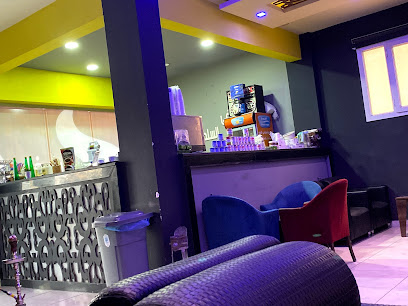
مقهى برستيج
Discover the vibrant atmosphere of مقهى برستيج, Zliten's premier hookah bar, offering a diverse selection of flavors and a relaxing ambiance.

مقهي مزاج
Experience the vibrant ambiance and exquisite flavors of hookah at مقهي مزاج, Zliten's premier destination for relaxation and socialization.
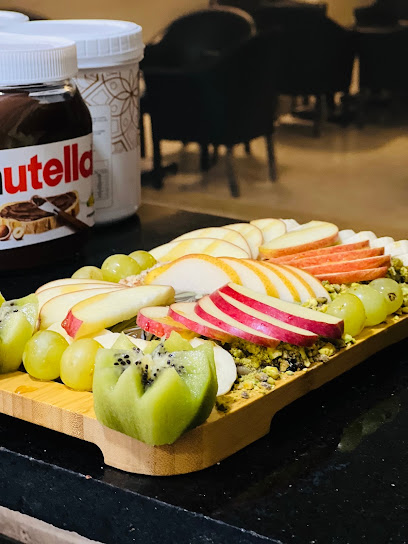
محل النخله لبيع السجائر
Experience the vibrant atmosphere of The Palm Shop in Zliten, a local bar where Libyan hospitality meets relaxation and socialization.
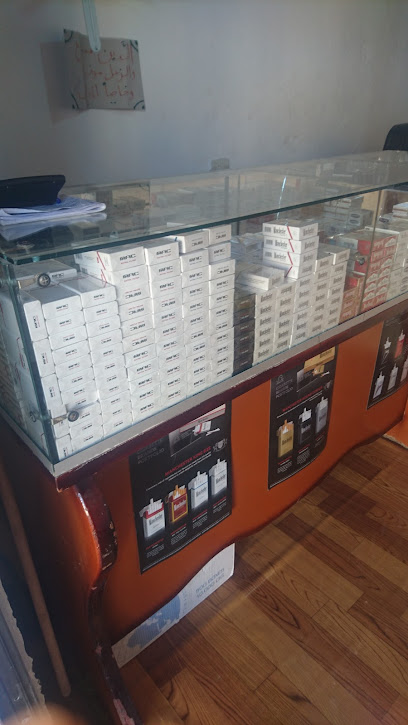
Libya
Experience the enchanting blend of history, culture, and stunning landscapes in Libya, a hidden gem of North Africa.
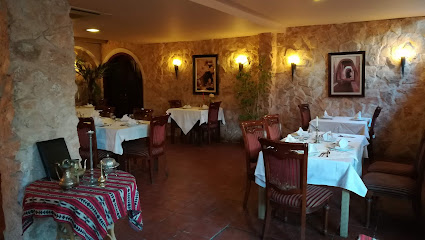
صالة العنود الأفراح والمناسبات
Experience elegance and sophistication at Al-Anoud Hall, Zliten's premier venue for weddings, parties, and corporate events.

محلات ابناء حسن الفاسي
Discover the cozy atmosphere of محلات ابناء حسن الفاسي, a charming lounge in Msallata that offers local refreshments and a welcoming environment.

مقبرة السواوة
Discover the serene beauty and rich history of مقبرة السواوة in Misrata, where artistry meets tradition in a captivating cemetery setting.

مطعم يوسف نبة
Savor the authentic taste of Libya at مطعم يوسف نبة, where every dish tells a story of rich culinary traditions and local hospitality.
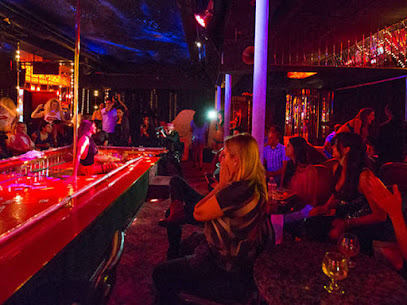
هويدي لبيع اللحوم
Experience the authentic taste of Libya at هويدي لبيع اللحوم, where traditional cured meats come to life in Zliten's inviting atmosphere.
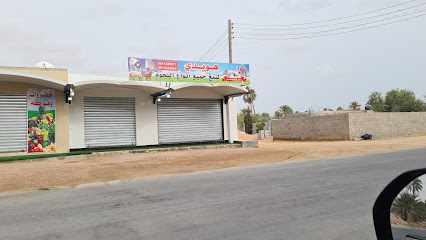
صالة المنساز
Discover the vibrant atmosphere of صالة المنساز in سوق الخميس/ الخمس, where shopping meets relaxation and local culture thrives.

عبدو من
Discover the lively ambiance and local flavors at Abdou Men Bar, the perfect spot for relaxation and socializing in Zliten.

غموقة ماركت للحلويات
Experience the delightful flavors of traditional Libyan sweets and beverages at غموقة ماركت للحلويات in Zliten, a must-visit confectionery bar.

Cafe716
Experience the vibrant culture of Zliten at Cafe716, a premier hookah bar offering authentic flavors and a welcoming atmosphere.

Local Phrases
-
- Helloمرحبا
[Marhaba] - Goodbyeوداعا
[Wada'an] - Yesنعم
[Na'am] - Noلا
[La] - Please/You're welcomeمن فضلك
[Min fadlik] - Thank youشكرا
[Shukran] - Excuse me/Sorryعذرا
[Aathir] - How are you?كيف حالك؟
[Kayfa haluk?] - Fine. And you?بخير. وأنت؟
[Bikhayr. Wa ant?] - Do you speak English?هل تتحدث الإنجليزية؟
[Hal tatahadath al'iinjleeziya?] - I don't understandلا أفهم
[La afham]
- Helloمرحبا
-
- I'd like to see the menu, pleaseأرغب في رؤية القائمة، من فضلك
[Arghab fi ru'ya alqaima, min fadlik] - I don't eat meatأنا لا آكل اللحم
[Ana la aakul allahm] - Cheers!في صحتك!
[Fi sahtak!] - I would like to pay, pleaseأرغب في الدفع، من فضلك
[Arghab fi aldaf', min fadlik]
- I'd like to see the menu, pleaseأرغب في رؤية القائمة، من فضلك
-
- Help!النجدة!
[Alnajda!] - Go away!انصرف!
[Insaraf!] - Call the Police!اتصل بالشرطة!
[Atasal bialshurtah!] - Call a doctor!اتصل بالطبيب!
[Atasal bialtabib!] - I'm lostلقد ضللت الطريق
[Lakad dalalt altariq] - I'm illأنا مريض
[Ana mareed]
- Help!النجدة!
-
- I'd like to buy...أرغب في شراء...
[Arghab fi shira...] - I'm just lookingأنا فقط أتطلع
[Ana faqat atatallaa] - How much is it?كم سعره؟
[Kam sairuh?] - That's too expensiveهذا غالي جدا
[Hatha ghali jiddan] - Can you lower the price?هل يمكنك خفض السعر؟
[Hal yumkinuk khafdh alsair?]
- I'd like to buy...أرغب في شراء...
-
- What time is it?كم الساعة؟
[Kam alsaa'a?] - It's one o'clockالساعة الواحدة
[Alsaa'a alwahidah] - Half past (10)الساعة العاشرة والنصف
[Alsaa'a al'ashirah walnasf] - Morningالصباح
[Alsubah] - Afternoonالظهر
[Alzohr] - Eveningالمساء
[Almasa] - Yesterdayأمس
[Ams] - Todayاليوم
[Alyawm] - Tomorrowغدا
[Ghadan] - 1واحد
[Wahid] - 2اثنين
[Ithnayn] - 3ثلاثة
[Thalatha] - 4أربعة
[Arba'a] - 5خمسة
[Khamsa] - 6ستة
[Sitta] - 7سبعة
[Sab'a] - 8ثمانية
[Thamaneya] - 9تسعة
[Tas'ah] - 10عشرة
[Ashrah]
- What time is it?كم الساعة؟
-
- Where's a/the...?أين هو/هي...؟
[Ayna huwa/hya...?] - What's the address?ما هو العنوان؟
[Ma huwa al'anaan?] - Can you show me (on the map)?هل يمكنك أن تريني (على الخريطة)؟
[Hal yumkinuk an tureenii (ala alkharitah)?] - When's the next (bus)?متى الحافلة القادمة؟
[Mata alhafilah alqadimah?] - A ticket (to ....)تذكرة (إلى...)
[Tazkirah (ila...)]
- Where's a/the...?أين هو/هي...؟
History of Zliten
-
Zliten, a city with roots stretching back to antiquity, was an important settlement during the Roman Empire. The area is renowned for the Roman Villa of Dar Buc Ammera, which boasts impressive mosaics depicting scenes of hunting, gladiatorial combat, and daily life. These mosaics are a testament to the affluent lifestyle and the cultural significance of the region during Roman times.
-
In the Middle Ages, Zliten became an important center of Islamic learning and trade. The city was established by Arab settlers and quickly grew due to its strategic location along trade routes. The influence of Islam is still evident today in the city’s architecture and the prominent presence of mosques.
-
Zliten is renowned for its association with Sufism, a mystical form of Islam. The city houses the Mausoleum of Sidi Abdul-Salam Al-Asmar, a revered Sufi saint. The shrine and the adjoining mosque and Islamic university attract pilgrims and students from across the Islamic world, making Zliten a spiritual hub.
-
During the Ottoman Empire, Zliten was a part of the Tripolitania Province. The Ottomans left a lasting architectural legacy in the city, with notable structures such as the Ottoman-era mosques and public baths. These buildings reflect the city's historical significance and the blending of different cultural influences over the centuries.
-
Zliten, like the rest of Libya, fell under Italian colonial rule in the early 20th century. The Italian administration built infrastructure, including roads and public buildings, some of which still stand today. This period also saw the introduction of modern agricultural techniques, which significantly impacted the local economy.
-
Following Libya’s independence in 1951, Zliten experienced significant growth and modernization. The city developed economically and socially, with improvements in education, healthcare, and infrastructure. Today, Zliten is a vibrant city that balances its rich historical heritage with contemporary advancements.
Zliten Essentials
-
Zliten is located in the northwestern part of Libya, along the Mediterranean coast. The nearest international airport is Mitiga International Airport in Tripoli, approximately 160 kilometers away. From Tripoli, you can take a taxi or rent a car to drive to Zliten. The journey typically takes around 2 hours by road. Alternatively, you can take a bus from Tripoli to Zliten, which offers a more economical option.
-
Within Zliten, taxis are the most common mode of transportation and are relatively inexpensive. There are also local minibuses that operate within the city and connect to nearby towns. Renting a car can be a convenient option if you plan to explore more remote areas at your own pace. Be sure to have an international driving permit if you choose to rent a car.
-
The official currency in Libya is the Libyan Dinar (LYD). Credit cards are accepted in some hotels, restaurants, and shops, but it is advisable to carry cash, especially in smaller establishments and rural areas. ATMs are available in Zliten, but ensure you have enough cash on hand as not all machines may be operational.
-
Zliten is generally a safe destination for tourists, but it is important to take standard precautions. Avoid walking alone at night in unfamiliar areas and keep an eye on your belongings in crowded places. There are no specific high-crime areas targeting tourists, but it's always best to stay vigilant and aware of your surroundings.
-
In case of emergency, dial 193 for police assistance or 190 for medical emergencies. The local police station and medical facilities are available in Zliten. It is recommended to have travel insurance that covers medical emergencies. For minor health issues, there are pharmacies in the city where you can purchase over-the-counter medications.
-
Fashion: Do dress modestly, especially when visiting religious sites. Avoid wearing revealing clothing. Religion: Do respect local customs and traditions. Always remove your shoes and cover your head when entering mosques. Public Transport: Do be respectful and give up your seat to elderly passengers. Don’t eat or drink on public transport. Greetings: Do greet people with a handshake. A slight bow of the head is also a sign of respect. Eating & Drinking: Do try local delicacies and accept food offerings graciously. Don’t refuse hospitality, as it is considered impolite.
-
To experience Zliten like a local, visit the local markets where you can buy fresh produce and traditional Libyan goods. Engage with locals, as they are often friendly and willing to share stories about the city’s history and culture. Don’t miss visiting the Roman ruins of Leptis Magna, which is a short drive from Zliten. For a unique experience, attend a local festival or celebration to immerse yourself in the vibrant culture.
Trending Landmark in Zliten
Nearby Cities to Zliten
-
Things To Do in Leptis Magna
-
Things To Do in Misrata
-
Things To Do in Tripoli
-
Things To Do in Sabratha
-
Things To Do in Djerba
-
Things To Do in Zurrieq
-
Things To Do in Marsaxlokk
-
Things To Do in Mqabba
-
Things To Do in Zejtun
-
Things To Do in Marsaskala
-
Things To Do in Tarxien
-
Things To Do in Paola
-
Things To Do in Marsa
-
Things To Do in Rabat
-
Things To Do in Mdina





